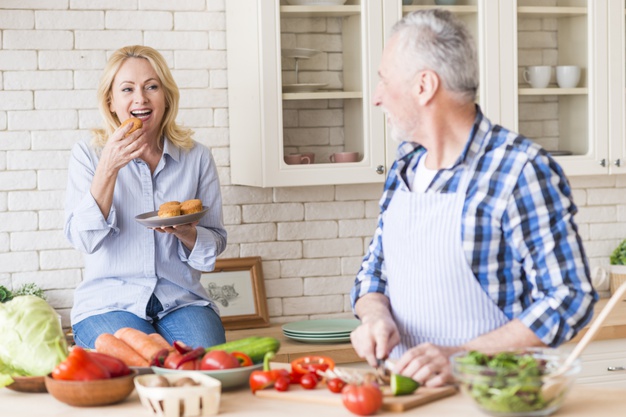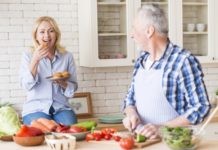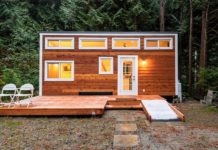Psychological researchers have a fancy name for it – eudaimonic well-being.
In Okinawa, they call it “ikigai.” (ee-kee-guy)
Some people have it, but others don’t – especially in their later years.
Yet, people with eudaimonic well-being – ikigai – live longer, healthier lives than those without it.
That’s not woo-woo philosophy, but documented by many scientific studies.
The Language of Okinawa has No Word for “Retirement”
Ikigai is your purpose in life. It’s what gets you out of bed in the morning.
Through most of our adult lives, we often don’t think much about it.
You have a job or a business – a career of some kind. It’s Monday morning, time to report to work. You have bills to pay.
You’re raising a family. Your spouse and your little ones want to eat tomorrow.
However, our society has come up with this idea called “retirement,” where we no longer do anything useful, so every day for the rest of our lives is a sunny Saturday morning.
Or, so we dream.
Dan Buettner and the Blue Zone Project
In 2004, Buettner partnered with National Geographic to investigate areas of the world where people live much longer than average. Where people live to the age of 100 and beyond at rates five to ten times higher than the rest of the world.
One blue zone was Okinawa, and that’s where they encountered the concept of ikigai. One of the over-100-year-old women they interviewed held an important role in her community. She was responsible for performing various religious ceremonies for the good of everybody.
Another Okinawan woman told Buettner her ikigai was holding her great-great-great-granddaughter – only 101 years separated them!
Even If You’re in a Nursing Home
As long as you’re still alive, you can benefit from helping others.
Years ago, researchers went into a nursing home and gave every resident a house plant to keep by their beds.
Half of the residents were told to enjoy the plant, and the nursing home staff would take care of watering and caring for it.
The other half were told they were responsible for taking care of their plants. If they didn’t water it as required, and their plant died, tough. Its health was up to them.
A year and a half later, the residents responsible for their house plants were more cheerful, active, and alert – as measured by psychological testing.
Over the 1 1/2 years of the experiment, members of both groups died. However, twice as many of the “not responsible” residents died as residents in the “responsible” group.
“Eudaimonic Well-Being” is Much Deeper Than Pleasure or Happiness in the Moment
In my opinion, there’s nothing wrong with “mere” happiness, but that’s not sufficient as a purpose in life.
Eat, drink, and be merry – but that happiness comes and goes. Eudaimonic well-being endures, even when you’re miserable.
Training to run a marathon, licking stamps for a fundraising mailing, and changing a grandbaby’s diaper aren’t necessarily “pleasurable,” but they give you a deeper reward.
The Proven Physical Benefits of Living a Life on Purpose:
* Better sleep
* Lower risk of stroke
* Lower risk of heart attack
* Lower risk of Alzheimer’s Disease
One of the most critical biomarkers for aging and disease is inflammation. And people with high eudaimonic well-being have lower inflammation, as expressed by their genes. How can your purpose or lack of one affect your gene expression? Nobody knows, but the data show it does.
Another study looked at older adults who volunteered to tutor children in urban schools. They found the volunteers experienced improved physical and mental health.
People with a reason to get out of bed are also at less risk of becoming disabled. They have lower all-cause mortality. That means they’re at less risk of dying for any reason.
That’s from an impressive study. Researchers followed 6,000 people, ranging in age from 20s to 70s, for fourteen years. People with a purpose – across all ages – were 15% less likely to die during those 14 years.
America’s Blue Zone
Six of the blue zones are in poor, rural agricultural areas. But one is Loma Linda, in San Bernadino County, Southern California. It’s home to a large number of Seventh-Day Adventists. Many of them take their religion and their religious community quite seriously, and the religion forbids the eating of meat. Many Adventists go a step further and eat totally vegan. The church also encourages other healthy habits.
The average life expectancy of an American woman is 80 – on average, Adventist women live to age 89. Adventist men live to age 87.
One of the Adventists Buettner met was Ellsworth Wareham. A cardiac surgeon, he performed some of the earliest open-heart surgeries, and was still assisting with heart surgeries at the age of 97.
Another was Marge, a 104-year-old woman who begins every day by lifting weights and riding her exercise cycle. Then she goes to one of the eight charitable organizations she volunteers for. “A stranger is a friend I haven’t met yet,” she told Buettner.
Faith-Based Communities Help Give You a Sense of Purpose
That was a commonality among all the blue zones Buettner investigated. The exact belief system doesn’t seem to matter. It just helps to have a sense of some God or of something bigger than yourself.
If you don’t believe . . . maybe that’s your purpose. The Amazing Randi is a retired magician who tirelessly works to debunk what he considers fraud and superstition. He clearly is not a religious believer. But working hard to debunk spirituality seems to help him, since he’s 91 and still going strong.
What’s Your Purpose?
What’s the first thing that popped into your mind when you read that question?
What dreams or ambitions did you give up to take a boring, ordinary job to support your family – go back to that dream.
Whether you find a purpose in your friends, your family, your church, a part-time job, a volunteer activity, a cause, a charity, a political candidate, learning something new, traveling somewhere new, attaining some worthwhile achievement, or – whatever.
The world does NOT suffer from a lack of problems and people who need help.
Pick something that’s worth getting out of bed for tomorrow morning, and do it.
That alone reduces your risk of dying by 15%.








